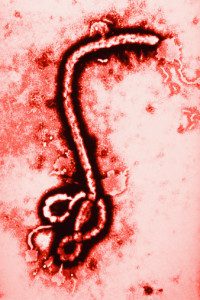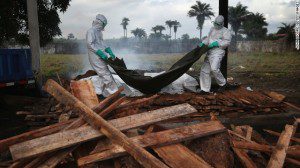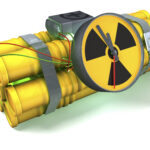 We have written several posts about the 2014 outbreak and have been alarmed at the lack of response by the International community to rally and intercept this growing threat. The current outbreak of Ebola in West Africa is growing at an exponential rate, i.e., on a track that continues to double the total caseload within half the time. Every day the international community waits without committing the hundreds of millions of dollars and massive deployment of infrastructure required to get in front of the epidemic means that hundreds more people die a most horrible and painful death. The United Nations cannot stop it, Doctors without Borders are completely overwhelmed, the individual countries do not have anything close to slow the disease in a single area – much less the country as a whole – and the US response has been far too little, too late. As detailed in the latest Foreign Affairs article titled “We could have Stopped Thisâ€, Pulitzer Prize winning author and Senior Fellow for Public Health at the Council on Foreign Relations, Laurie Garrett wrote:
We have written several posts about the 2014 outbreak and have been alarmed at the lack of response by the International community to rally and intercept this growing threat. The current outbreak of Ebola in West Africa is growing at an exponential rate, i.e., on a track that continues to double the total caseload within half the time. Every day the international community waits without committing the hundreds of millions of dollars and massive deployment of infrastructure required to get in front of the epidemic means that hundreds more people die a most horrible and painful death. The United Nations cannot stop it, Doctors without Borders are completely overwhelmed, the individual countries do not have anything close to slow the disease in a single area – much less the country as a whole – and the US response has been far too little, too late. As detailed in the latest Foreign Affairs article titled “We could have Stopped Thisâ€, Pulitzer Prize winning author and Senior Fellow for Public Health at the Council on Foreign Relations, Laurie Garrett wrote:
“This week CDC Director Tom Frieden returned from Liberia visibly stunned, flabbergasted by what he had witnessed, warning that “There is a window of opportunity to tamp this down, but that window is closing.”†However, despite promising to commit more money and sending more people to region, the US is not prepared to support the effort without creating a much larger risk here at home. According to an August 2014 OIG Report titled DHS Has Not Effectively Managed Pandemic Personal Protective Equipment and Antiviral Medical Countermeasures:
Key Findings: 200,000 respirators in the National Stockpile have expired, along with 84% of the hand sanitizer. Of the 290,000 doses of influenza vaccine in stock, 81% will expire in 2015. Other findings include the purchase of 16M surgical masks and 350,000 white coverall suits without demonstrating need.
 Watching the Frontline special on the Outbreak, it is easy to see the absolutely primitive conditions the medical staff is battling, literally hacking out space in the jungle and erecting shelters without walls with corrugated tin roofs to segregate the patients and essentially wait for them to die.
Watching the Frontline special on the Outbreak, it is easy to see the absolutely primitive conditions the medical staff is battling, literally hacking out space in the jungle and erecting shelters without walls with corrugated tin roofs to segregate the patients and essentially wait for them to die.
With our military already stretched thin and assuming another round of fighting in the Middle East, we have made some commitments to use the military to build medical facilities. Unfortunately, as described in a Washington Post article today, we aren’t really in a position to help even if we want to due to lack of expertise and available equipment.
We are offering to put up a 25 bed hospital, with the geometrically progressing disease estimated to reach 20,000 victims in the space of a few more months.
In an eye opening move, the Gates Foundation pledged a record $50M, available immediately, to combat the rapid spread of the disease, exactly the kind of bold action required by governments to scale up the response to this crisis before it becomes a global pandemic event.
It may be difficult to get the attention needed to fix this problem with the global issues involving ISIL in Syria, Iraq and Kurdistan, the Ukraine and Estonia, however, each time the virus infects a human host, it has the opportunity of mutating to become more virulent or the true nightmare scenario: airborne transmission.
 Another frightening and plausible scenario is that Boko Haram, the brutal terrorist organization that has been terrorizing Nigeria for the last five years, could intentionally infect a “bio-martyr†who enters the US during the 21-day, asymptomatic incubation period and intentionally infects people in a major urban population center.
Another frightening and plausible scenario is that Boko Haram, the brutal terrorist organization that has been terrorizing Nigeria for the last five years, could intentionally infect a “bio-martyr†who enters the US during the 21-day, asymptomatic incubation period and intentionally infects people in a major urban population center.






0 Comments